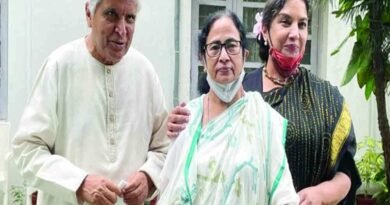A Lesson on Temples from Swami Vivekananda
Swami Vivekananda was not allowed to visit Odisha temples after his return to India following his triumphant visit to the USA in 1893 to address several lectures including in the famous event organised by World Parliament of Religions in Chicago.
It is a coincidence that the birth anniversary of Swami Vivekananda was celebrated on January 12 when there is massive publicity campaign launched by Narendra Modi regime for the consecration of Ram in Ayodhya on January 22, exactly in the same site where on December 6, 1992, the Babri mosque was demolished and Supreme Court held that to be an egregious violation of rule law. There is massive controversy being generated by BJP around Congress leaders and others who declined to participate in the much hyped-consecration ceremony.
Four Shankaracharya also declined to participate on several grounds, one of which is that the temple is not completely constructed and so it is in contravention of scriptural injunction not to consecrate the deity in an incomplete shrine.
Note that Swami Vivekananda was not allowed to visit Odisha temples after his return to India following his triumphant visit to the USA in 1893 to address several lectures including in the famous event organised by World Parliament of Religions in Chicago.
So, here is an example of cerebral monk of Hinduism who mesmerised Americans by his brilliant exposition of spirituality and Vedanta and yet was told that he would not be allowed entry to temples of Odisha. In Volume 5 of Swami Vivekananda’s Complete Works, on page number 171, there is a letter Swami ji wrote to one Josephine MacLeod. In that, he wrote with anguish, “I do not know whether it will be possible to see the Orissan temples in company with your Japanese friends”.
“I do not know”, he added, “whether I shall be allowed myself owing to my eating “Mlechchha Food”.
While Swami Vivekananda was dubbed as “mlechchha food” eater because he ate food cooked by Christians in America and was not allowed to enter those temples of Orissa, present day Odisha, now Congress leaders refusing to join the Ram temple event in Ayodhya are dubbed as Ram-drohis or traitors to Ram.
It is illuminating to not that Swami Vivekananda also reflected on the establishment of Indian National Congress which was established in 1885 by Allan Octavian Hume, a British national.
Eleven years later in 1896 while Vivekananda was in London, he was asked a question: “Have you given any attention to the Indian National Congress moment?” In his response he said that he did not pay enough attention to it and added, “…I regard the movement as significant, and heartily wish it success.”
Explaining further, he said that a nation was being made out of different races which in terms of variety remained no less plural than different peoples of Europe. He interpreted the acquisition of Indian trade by several European countries such as Britain, Dutch, Portugal and French as “a turning point in the history of humanity” and described that the trade and commerce of India played a tremendous part in the civilisation of the world.
When asked in what direction it would proceed to attain finality, Vivekananda very presciently, said that it would lead to, in his words, “…the working out of India’s homogeneity, in her acquiring what we may call democratic ideas.” He went on to state that monopoly over intelligence and education by a cultured few should come to an end, provision of education should be accompanied with compulsory education and immense power of people should be utilised to actualise India’s potential.
When Vivekananda was asked if India was sensitive and conscious of the awakening that he alluded to, his response was: “Perfectly conscious, The world perhaps sees it chiefly in the Congress movement and in the field of social reform.”
In 1898 when someone told Swami ji that India National Congress and other patriotic organisations were carrying on strenuous agitation and petitioning the British government, he remarked that the rulers’ duty was to address the problems of the people. In that context he flagged the point as to who would continue to place people’s issues before the government. He asked, “Where are the men who are the able to keep up things demanded?” and suggested, “So make men first”.
And so it was that Swami Vivekananda spoke thus of just 13 years after the establishment of Congress in 1885. This organisation is now criticised by none other than Prime Minister Narendra Modi for having been set up by a foreigner.
Vivekananda’s ideas in the context of agitations
Swami Vivekananda’s words “Where are the men who are able to keep up things demanded” resonate in the several movements of people including the Bharat Jodo Yatra and now the Bharat Jodo Nyay Yatra, being launched on January 14. His vision is being carried forward by people engaged in several agitations with the ability to “keep up things demanded.”
That was why Swami Vivekananda was often invoking the stirring words of the Upanishad, “Arise, awake and stop not till the goal is reached”. Rajiv Gandhi as prime minister of India had started celebrating Swami Vivekananda’s birthday as National Youth Day. Days after his birth anniversary, India must remain tuned to his words uttered in Chicago – that “sectarianism, bigotry and its horrible descendent fanaticism drenched the earth with the blood of innocents”, and hope that the bell that tolled to announce the commencement of the World Parliament of Religions would be the death knell of fanaticism.
Author: S.N. Sahu
Source: The Wire




